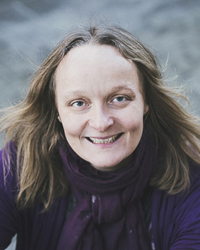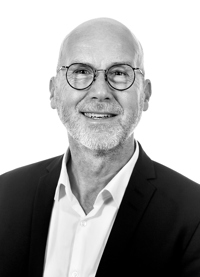Early assessment of innovation projects with EARTH
Development and use of innovative medical technology in hospitals both in Denmark and abroad has increased and expectations for innovation projects, such as telemedicine, drones, apps and healthcare IT, are often very high.
PROJECT PERIOD
Start: August 2014
End: September 2017
But an interview study showed that only one in ten innovation projects goes into operation and delivers value in terms of clinical effect, patient experience, financial value, etc.
The chance of success can be increased if hospital managements (and funds or companies) critically assess the technology and its expected value at an early stage in the development process. In this way, the hospital can focus on those initiatives that are most likely to achieve the expected gains and make a positive difference when implemented in daily operation. The hope is that early assessment will lead to better outcome of the resources spent on innovation for the benefit of both hospitals, patients and society.
AIM
To enable robust early assessments, the PhD project developed the model EARTH (Early Realistic assessment of innovative medical Technologies in Hospitals) to assess the expected value of innovative medical technology at an early stage. Value should be interpreted broadly and includes the expected future effect on patient experience, clinical, financial, technical and organisational aspects.
RESULTS
The research project examined how early assessment of innovative technologies takes place – primarily in the private healthcare industry. A qualitative study of early assessment used in the health sector was conducted as well as a literature review. The knowledge obtained formed the basis for the development of the model EARTH. EARTH is being tested for the first time on the Health Drones project.
EARTH has a total of six steps and central to this is an ongoing assessment, which analyses whether:
- the development of selected KPI (key performance indicators) is positive
- the risk level is reduced during the early development of innovative technology
- evidence and documentation of the expected effects is strengthened over time.
The early assessment can be used to support decisions on development in the project as well as “go/no-go”. The early assessment is a tool for the hospital management or steering committee to decide at key points in the development process if it is profitable to keep developing on the innovation project.
PARTNERS
The project was a PhD project by Iben Fasterholdt. View Iben's profile at ResearchGate.
The project was carried out in collaboration with THETA Collaborative, including Professor Murray Krahn, who is head of THETA. The supervising team was Head of Research Kristian Kidholm, Senior Researcher Knud Bonnet Yderstræde and Professor Kjeld Møller Pedersen (main supervisor).
Read the interview study on early assessment, which was the background for this project. You can also read a review of models for early assessment.
EXTERNAL FUNDING
The project was financed by funds from SmartCare and the Faculty of Health Sciences at the University of Southern Denmark.

Iben Fasterholdt
Senior Researcher, PhD
Odense University Hospital, Dept. of Clinical Development - Innovation, Research & HTA
(+45) 2979 6704 iben.fasterholdt@rsyd.dk

Kristian Kidholm
Professor, Head of Research
Centre for Innovative Medical Technology (CIMT). Odense University Hospital, Dept. of Clinical Development - Innovation, Research & HTA
(+45) 6541 7960 kristian.kidholm@rsyd.dk
